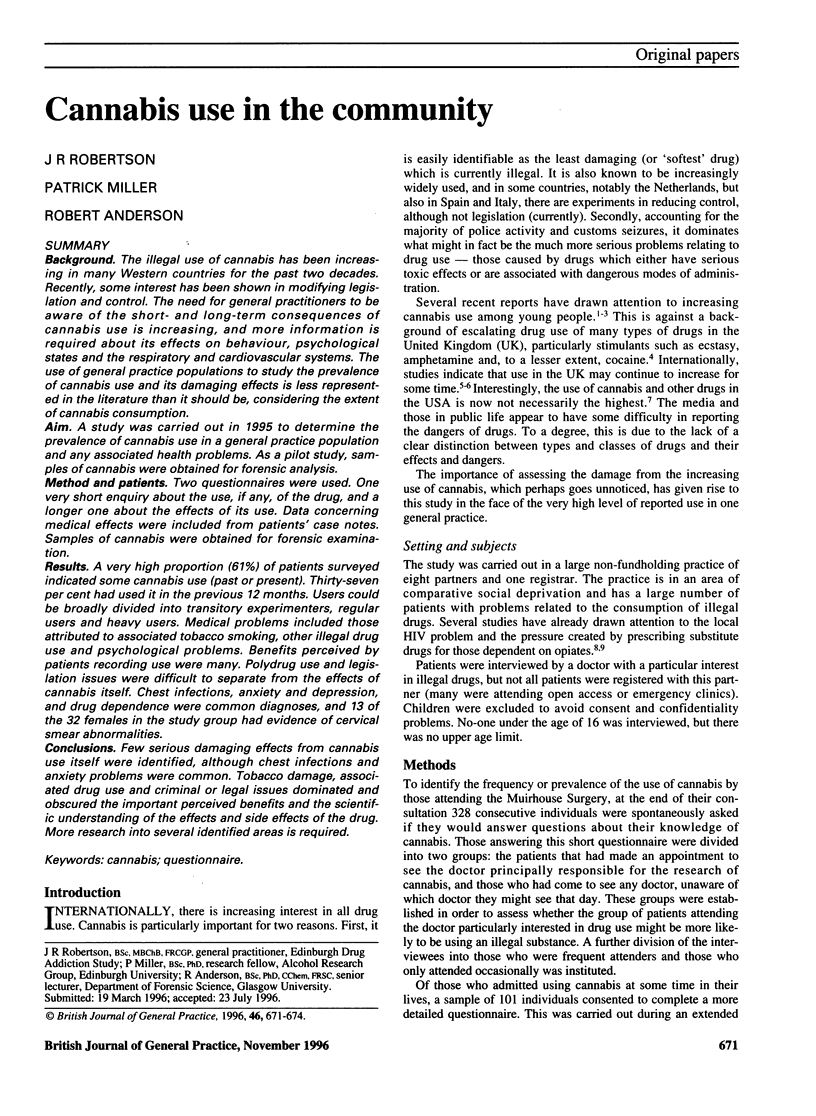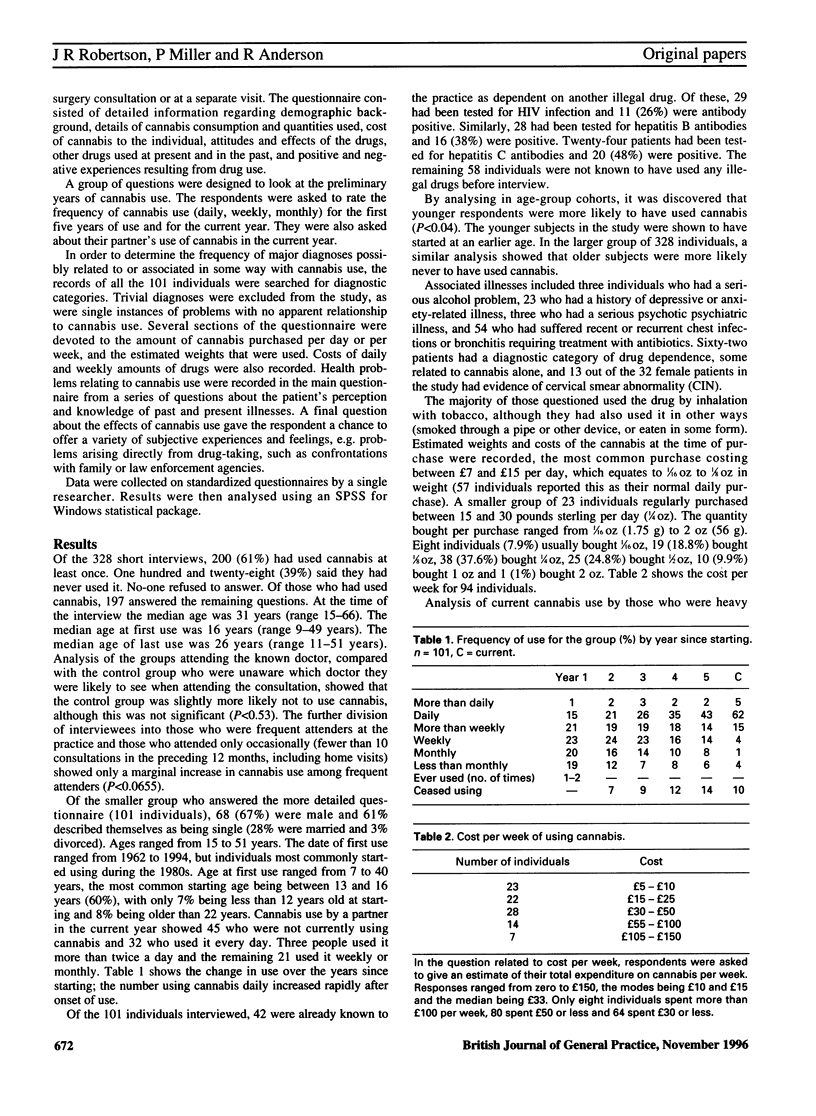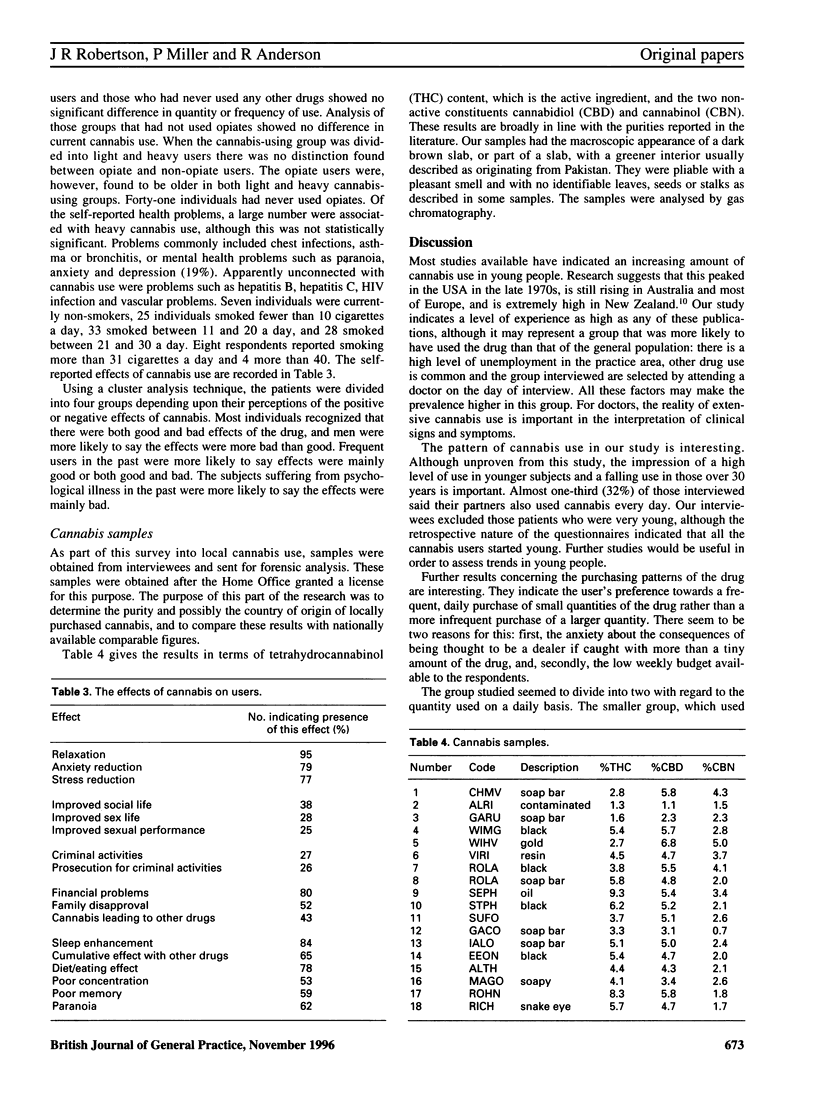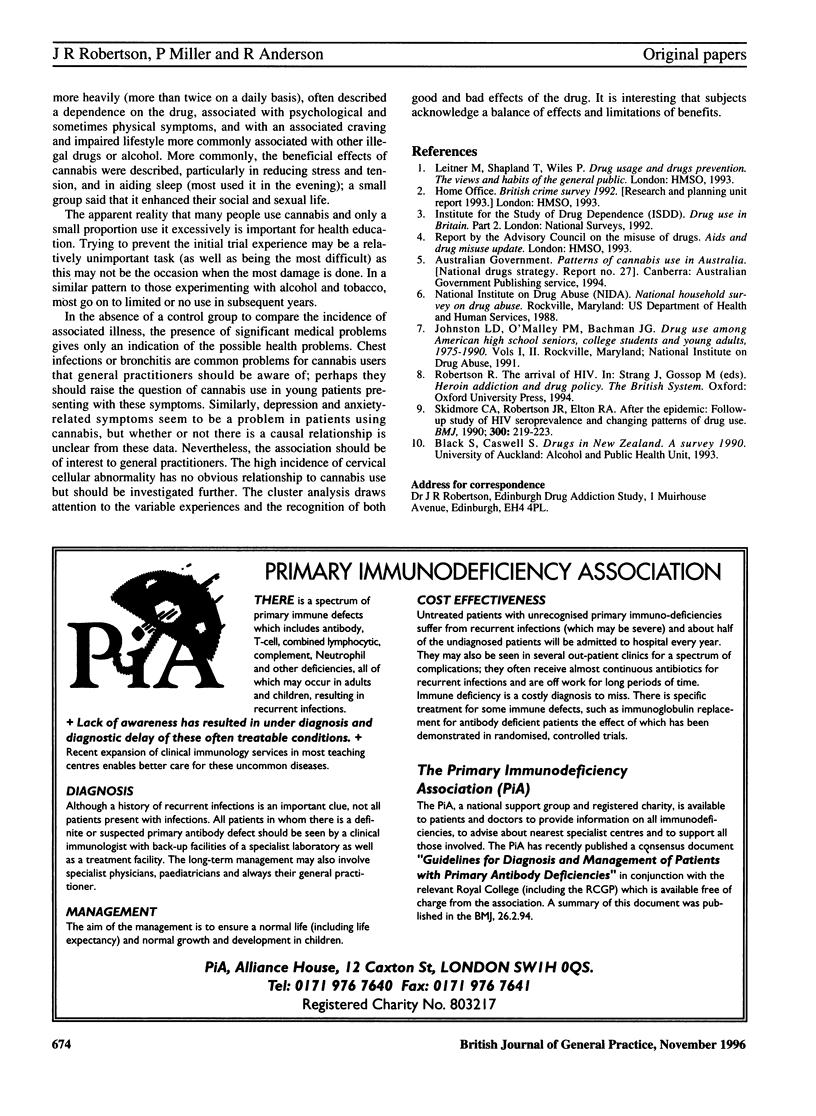Abstract
BACKGROUND: The illegal use of cannabis has been increasing in many Western countries for the past two decades. Recently, some interest has been shown in modifying legislation and control. The need for general practitioners to be aware of the short- and long-term consequences of cannabis use is increasing, and more information is required about its effects on behaviour, psychological states and the respiratory and cardiovascular systems. The use of general practice populations to study the prevalence of cannabis use and its damaging effects is less represented in the literature than it should be, considering the extent of cannabis consumption. AIM: A study was carried out in 1995 to determine the prevalence of cannabis use in a general practice population and any associated health problems. As a pilot study, samples of cannabis were obtained for forensic analysis. METHOD AND PATIENTS: Two questionnaires were used. One very short enquiry about the use, if any, of the drug, and a longer one about the effects of its use. Data concerning medical effects were included from patients' case notes. Samples of cannabis were obtained for forensic examination. RESULTS: A very high proportion (61%) of patients surveyed indicated some cannabis use (past or present). Thirty-seven per cent had used it in the previous 12 months. Users could be broadly divided into transitory experimenters, regular users and heavy users. Medical problems included those attributed to associated tobacco smoking, other illegal drug use and psychological problems. Benefits perceived by patients recording use were many. Polydrug use and legislation issues were difficult to separate from the effects of cannabis itself. Chest infections, anxiety and depression, and drug dependence were common diagnoses, and 13 of the 32 females in the study group had evidence of cervical smear abnormalities. CONCLUSIONS: Few serious damaging effects from cannabis use itself were identified, although chest infections and anxiety problems were common. Tobacco damage, associated drug use and criminal or legal issues dominated and obscured the important perceived benefits and the scientific understanding of the effects and side effects of the drug. More research into several identified areas is required.
Full text
PDF



Selected References
These references are in PubMed. This may not be the complete list of references from this article.
- Skidmore C. A., Robertson J. R., Robertson A. A., Elton R. A. After the epidemic: follow up study of HIV seroprevalence and changing patterns of drug use. BMJ. 1990 Jan 27;300(6719):219–223. doi: 10.1136/bmj.300.6719.219. [DOI] [PMC free article] [PubMed] [Google Scholar]


